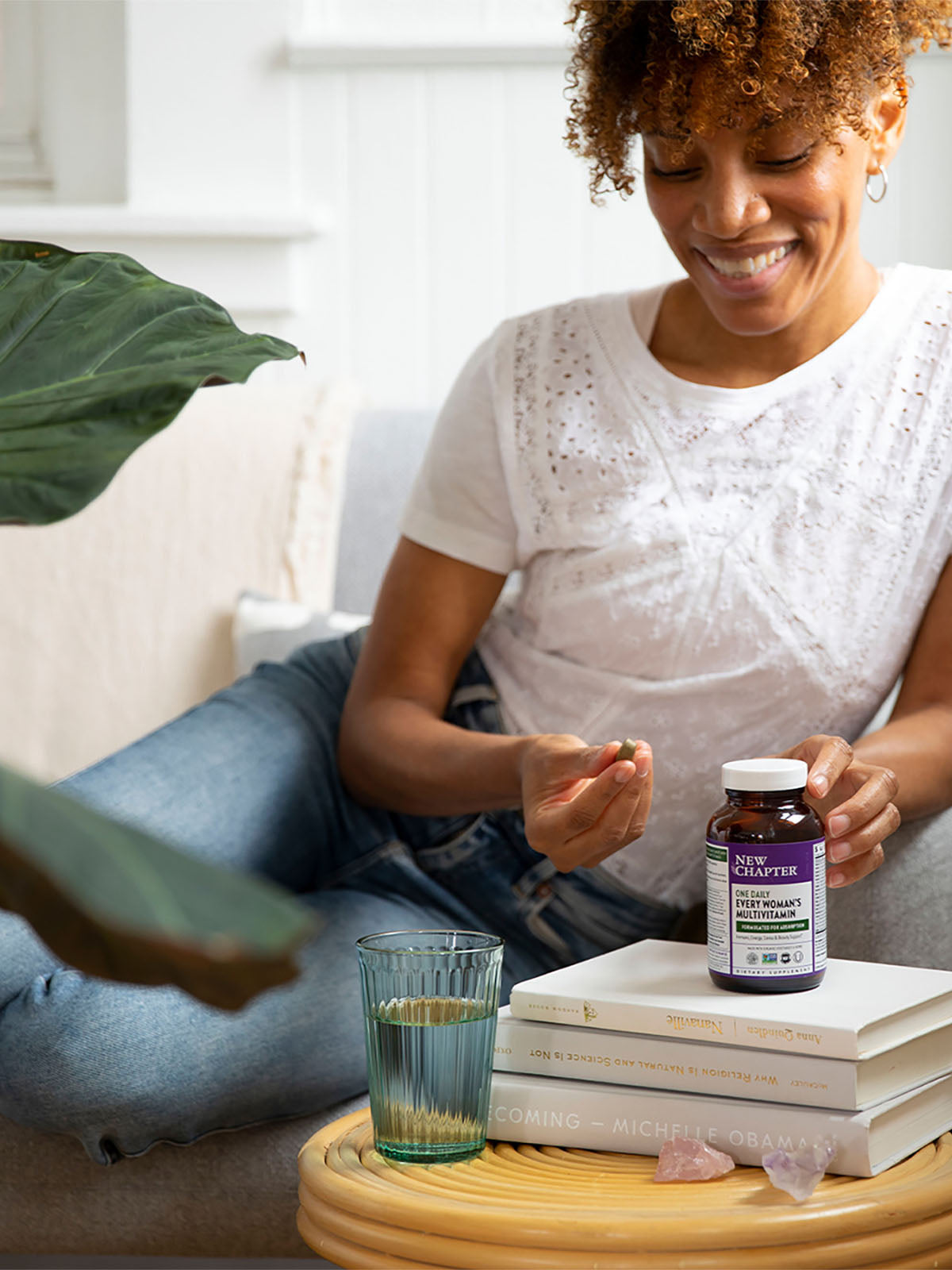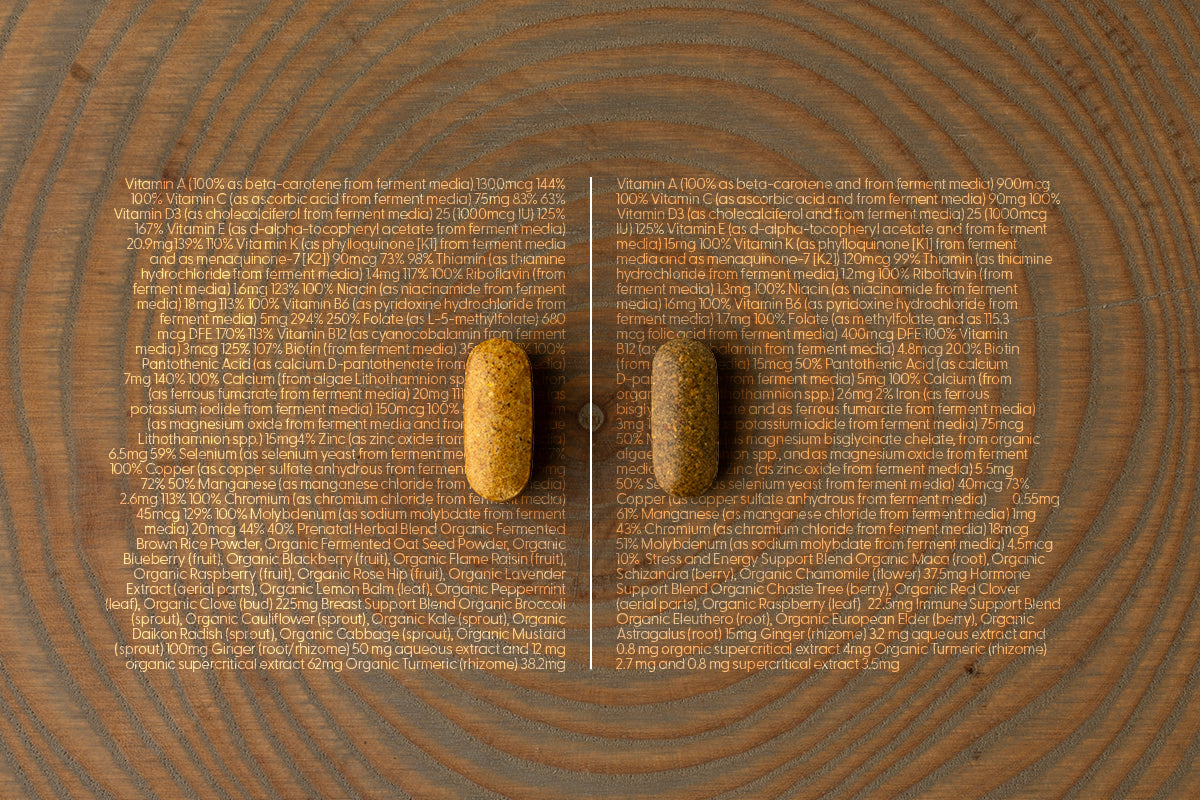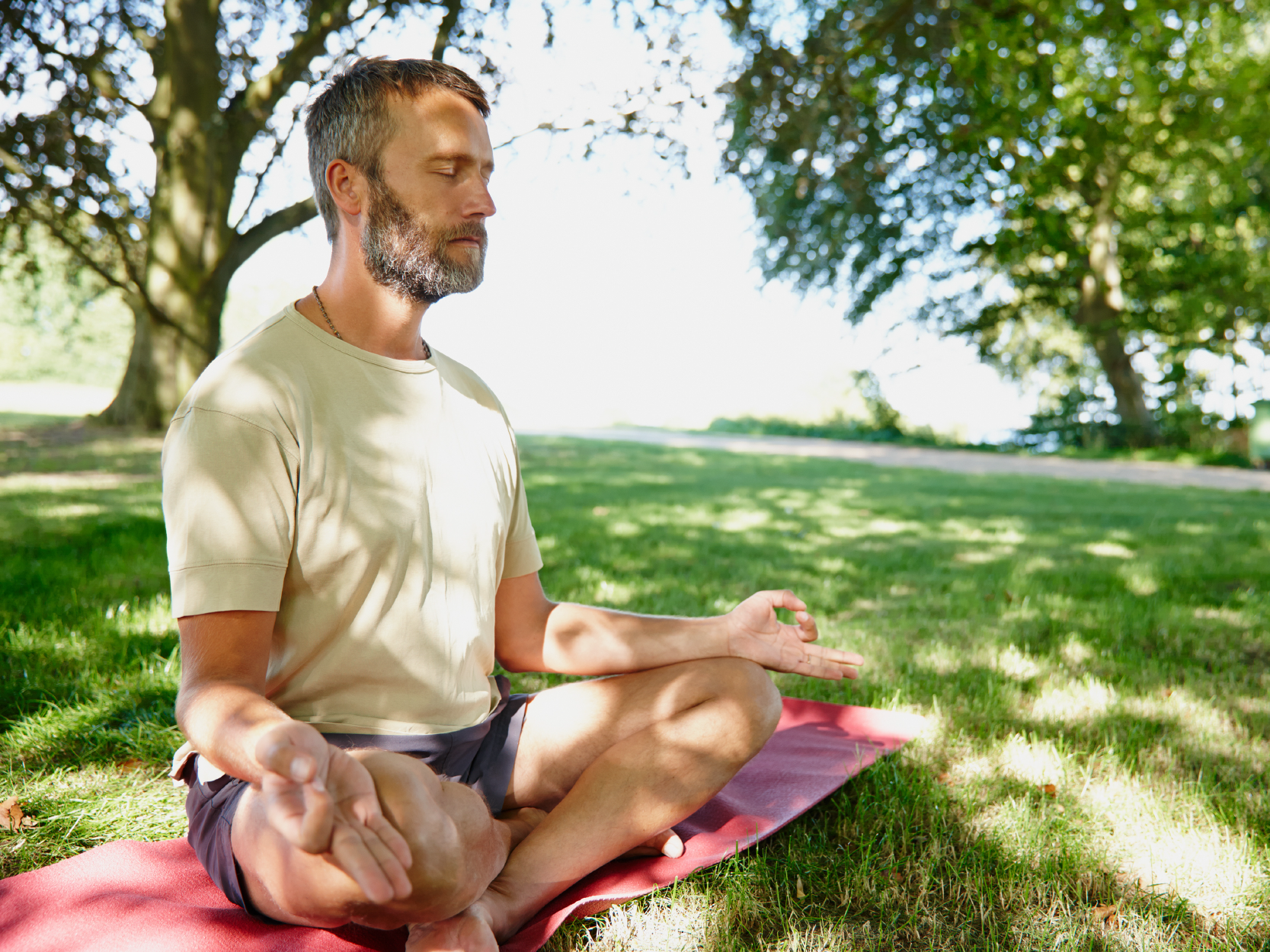If you're struggling to get the sleep you need, you are not alone! One in three adults don’t get enough sleep on a regular basis. And the truth is, getting quality sleep for 7 to 8 hours a night is crucial for your mental and physical health, whether you’re in your 20s or your 80s. Fortunately, some easy upgrades to your routine can help you get a restful night’s sleep and wake up refreshed.
Ways to Improve Sleep Naturally
How can you improve sleep quality? Committing to a nighttime routine is key. Set up your schedule and your bedroom to prioritize restful, healthy sleep. There are also herbal approaches to enhance natural sleep. Effective herbal sleep aids include a targeted sleep blend with clinical-strength ginger to help relieve pain† paired with non-groggy melatonin to support natural sleep cycles.
Reasons for typical sleep problems vary: Poor sleep can be related to stress, light, noise, shift work, eating right before bedtime, and drinking alcohol. To cut down on unpleasant tossing and turning, experts recommend good sleep hygiene. This means following a solid nighttime routine, plus fine-tuning some key daytime habits. And there’s a big upside! The benefits of a full night’s sleep include being sick less often, maintaining a healthy weight, reducing stress, improving your mood, and thinking more clearly. Improving your deep sleep can also reduce the risk of heart disease and diabetes. (Please note: If you are concerned about a sleep issue like insomnia or sleep apnea, talk to your healthcare provider.) Let’s dig into three ways you can improve sleeping patterns.

Follow a Sleep Routine
- Maintain a consistent sleep schedule. This means going to bed and waking up at about the same time every day. If you have difficulty falling asleep, avoid napping in the afternoon.
- Create a pre-bedtime ritual lasting 10 to 40 minutes. This might include getting your clothes out for the next day, doing gentle stretches, meditating, journaling, or taking a bath. Your ritual will help your brain and your body know “it’s bedtime.”
Create a Sound Sleep Environment
- Reserve your bed for sleep and intimacy. If we associate our bed or bedroom with activities such as watching movies or responding to texts and emails, our bodies will have a harder time falling asleep in these same spaces. The more time you spend in your bedroom awake, the more your brain associates this space with being awake.
- Put your electronics to bed at least an hour before bedtime. Digital electronics with their lit screens are an integral part of our lives. Many of us check texts or emails before we call it a night. But increased exposure to light after sunset disrupts our natural circadian clock that is designed to manage normal hormonal rhythms. For example, blue light from screens has been linked to disrupting natural production of the hormone melatonin, which helps us fall asleep. So give yourself a screen-free bedtime.
- The National Sleep Foundation also recommends keeping the bedroom temperature between 60 and 67 degrees for optimal, deep sleep. As you wind down for sleep, your body temperature decreases. Keeping the room cool will help the process along.
- If you can’t fall asleep within 10-15 minutes, get up and do one simple thing from your to-do list that will de-stress you, like emptying the dishwasher or folding the laundry. If you like to read until you feel sleepy, place a comfortable chair next to your bed and read there.
Re-Think Your Daily Routine
- Did you know that caffeine from coffee, black tea, or chocolate can stay in your body up to 8 hours? Limiting your consumption of those satisfying beverages or treats to the first 8 hours of your day may help you sleep better at night.
- Of course, it’s important to exercise regularly, and exercise can help with sleep quality. But exercising too close to bedtime can spike your energy levels. So choose morning or mid-day for your workout to reap the benefits of those extra endorphins during the day, rather than late into the night.
- Eat your biggest meals earlier in the day. Help your body wake up with a healthy, filling breakfast. End the day with a light and simple dinner to avoid digesting a heavy meal overnight, which can disrupt sleep.
- Choose one of these suggestions and add it to your routine for three weeks to make it a habit. Then add another one, then another, to build a sleep-supporting routine that works for you.
Safe Herbs for Sleep Support
In addition to healthy habits for sleep, you can get remarkable support from the plant kingdom to help you get the rest you deserve.
Soothe with Essential Oils
Does a good night’s sleep have a smell? To some, the perfect sleep scent is the calming aroma of lavender. A number of studies investigated the positive sleep benefits of essential oils, and lavender is one of the most researched aromas that promotes sleep. Add lavender to your evening! Other essential oils for bedtime are comforting vanilla, sultry jasmine, or the refreshing calm of sweet orange. Bonus: Essential oils are easy to use.
- Infuse a few drops into a cloth or tissue and place it on your bedside table. The scent can waft your way all night long.
- Add one or more oils to an aromatherapy diffuser as part of your nighttime routine.
- Make a DIY spray—add 5-10 drops of oil to 1 ounce of water in a spray bottle, then lightly mist your pillows or sheets. Fragrant bliss.
Sip Herbal Teas for ZZZs
A good sleep might start with a good steep—steeping your herbal tea, that is. To help body and mind unwind, have a soothing cup of nighttime tea in the evening. Check out the tea section at your favorite store for bedtime blends featuring relaxing herbs for sleep such as chamomile flower, valerian root, lemon balm leaf, and passionflower. (No caffeine, please!) Valerian in particular can be an effective herbal partner for sleep—it’s thought to promote increased levels of GABA (gamma aminobutyric acid), which is a soothing neurotransmitter in the brain. If valerian tea is not your bag, try lemon balm, believed to have similar GABA-supportive properties.
Take a Soothing Sleep Aid
How about an herbal lullaby that melts away the tensions of your day and promotes healthy, restful sleep? Restful Sleep and Pain Relief† from New Chapter is our one-daily, non-habit forming supplement designed with a 1 mg dose of melatonin to help you fall asleep naturally and regulate your body's own sleep cycles. We use excellent quality, non-GMO melatonin, and complementary herbs such as Valerian, Tart Cherry, and Turmeric. Plus, since many people report that aches and pains cause poor sleep, we also include clinical-strength Ginger to help relieve pain naturally.† So you get DOUBLE benefits from this non-habit-forming blend that works without causing grogginess. Not bothered by pain? Sleep well with Plant Melatonin‡ + Tart Cherry & Ashwagandha to support restful sleep without morning grogginess, delivering 2 mg of plant-based melatonin per vegan capsule. Or go for our perfect pairing of Magnesium + Plant-Based Melatonin made with 1 mg of non-groggy plant-based melatonin‡ blended with high-absorption magnesium bisglycinate that supports muscle recovery and relaxation.*
So at the end of the day (literally!), a satisfying evening routine is the perfect wrap-up for your daily wellness journey. As you’re building the healthy habits that work for you, also check out easy morning wellness tips. We wish you sweet dreams tonight and every night.
† Occasional pain following exercise
‡ Processed from tomatoes






